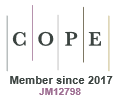Corrigendum to: Integrative taxonomy increases biodiversity knowledge of Gusana (Platyhelminthes, Tricladida, Geoplanidae) with the description of four new Chilean species
Ana Laura Almeida, Marta Álvarez-Presas, Laura Bolonhezi and Fernando Carbayo
Invertebrate Systematics
36(9) 874 - 876
Published: 10 October 2022
Abstract
The Chilean land planarian genus Gusana (Platyhelminthes, Tricladida, Geoplaninae) currently comprises three species that were described in the 19th century. Four new species of the genus are described herein, namely G. hualpensis Carbayo, sp. nov., G. lujanae Almeida & Carbayo, sp. nov., G. melipeucensis Almeida & Carbayo, sp. nov. and G. purensis Bolonhezi, Almeida & Carbayo, sp. nov. An integrative taxonomy approach was adopted by combining morphological (anatomy, histology) and molecular (COI and 28S genes) information. Additionally, the monophyletic status of Gusana is investigated and the species are delimited by a recently introduced molecular delimitation method based on pairwise genetic distances. All Gusana species are very similar in attributes such as body shape, dorsal colour pattern and internal organs, namely the pharynx and copulatory apparatus and only differ in the details. Gusana is retrieved as monophyletic and the molecular delimitation method recovered the same species recognised morphologically. A re-diagnosis of the genus and replacement of G. lata into Pseudogeoplana are also proposed. A new role of the penis papilla is also suggested based on the spermatophore found in Gusana lujanae.https://doi.org/10.1071/IS21066_CO
© CSIRO 2022


